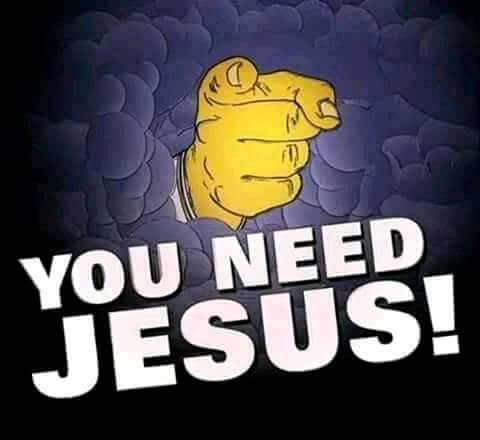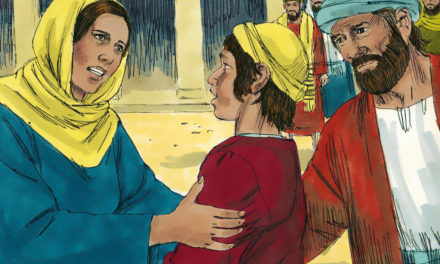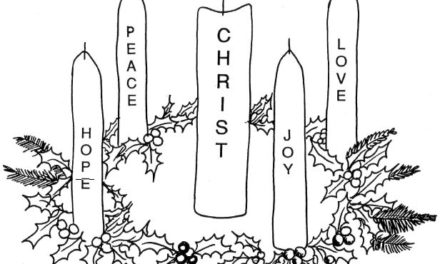In the book of Isaiah chapter 5, ‘Song of the Vineyard,’ we learnt about the house of Israel and the people of Judah, God’s pleasant planting to whom Isaiah spoke the prophecy and compared to a disappointing vineyard. Despite the love and care of the Owner, produces only wild grapes (Is 5:1-7). To bear good grapes as inclusive ‘branches of the vine,’ we have the options to accept the Lord’s rule, or to reject it, self – inclusive exclusion, and become a disappointing vineyard like the house of Israel and the people of Judah. To be a part of the ‘branches of the vine,’ is a call to radical exclusivity, to live a live in obedience to the Lord and His Words, not repeating or justifying the sins of past and present generations.
Parable of inclusion as a call to radical exclusivity from self- inclusive exclusion summons us to escape God’s justice. Parable of inclusion beyond the ‘modern parlance, the terms ‘inclusive’ and ‘inclusivity’ … currently used as a sort of shorthand to denote a liberal attitude,’ forget the world of Jesus’ exclusivity. Beyond an interpretation of the Bible on Inclusive Christianity provided by Mohandas Gandi that one can be ‘simultaneously a Christian, a Muslim, and a Hindu,’ parable of inclusion as a call to radical exclusivity denounces the liberal attitude and errors that narrows inclusion thereby simplifying the Christian faith, letting go important truth of salvation.
In the Gospel reading from Matthew chapter 21, Jesus reminds us about His unwillingness to give up on the Pharisees, or anyone else for that matter. Jesus, a certain landowner planted a vineyard and set a hedge around it. In this parable of inclusion, the problem was with the tenants just as it was with the house of Israel and the people of Judah. Comparatively, the house of Israel and the people of Judah and the tenants’ relationship with God which resonates with our relationship with God today is intended to be one of inclusive love which is beyond liberal tolerance. Rayment-Pickard, Hugh and Shakespeare, Steven in their book, ‘The Inclusive God: Reclaiming Theology for an Inclusive Church’ reminds us how the liberal theology has been driven by social justice issues and an ethic of tolerance since 1960s. The reflection is that, just as an inclusive vision of God lies at the heart of Christian theology, the exclusive claim of God gives life to Christian theology. As open and inclusive as Jesus’ and John Wesley’s missional invitation reveals, there is the exclusiveness “to flee from the wrath to come.” The parable of inclusion points to ‘a way as inclusive as the love of God and as exclusive as the readiness of the human heart to follow on.’
Reflecting on the parable of the tenants as a parable of inclusion, God is always open and patient to offer everyone second and third opportunity to repent and obey Him. The warning is that, the rejection of God’s love and obedience to His word brings judgement. Beloved, God is calling us not to take His love for granted because ‘the kingdom of God can be taken from anyone and given to a nation bearing the fruits of it. And whoever falls on this stone will be broken; but on whomever it falls, it will grind him to powder.’ The parable of inclusion with reference to the tenants as a call to radical exclusivity warns us against the danger of not receiving the Lordship of Jesus Christ into our lives. The parable of inclusion is the good news, hope and joy of Jesus’ unwillingness to give up on us. However, the challenge about this parable of inclusion is that it confronts us with the truth of the gospel, the truth about our lives that is almost always difficult to hear and accept. Jesus’ parable of inclusion is a call to discipleship and holiness hence it is difficult to accept the warning that, the rejection of God’s love brings judgement (Jn 3:16). Jesus’ parable of inclusion is a call to redemption, renewal and our recovery from the lost place of our self- inclusive exclusion like the prodigal son, calling us back to life, and leading us home. Remember, the story of the prodigal is a parable of self exclusion for inclusion with the world standard just as the parable of the wicked vinedressers is also a parable of self-exclusion from the love and mercy of God. What was inclusion for the Prodigal son was his exclusion from the Father’s inclusion. Thanks to God, he came to his senses.
The parable of inclusion as a call to radical exclusivity warns against taking the inclusive love and truth of Christianity for granted, hence it points us to the road to life and the road to judgement. The parable of inclusion as the narrow path calls us to bear good fruit so as not to be cut down or walk the broad road to destruction. The parable of inclusion as a call to radical exclusivity is not about multiple paths of inclusive theology or ways to live. Jesus’s inclusive call is matched by a radical exclusivity in his teaching, hence the parable of inclusion calls us to hold ‘together both the inclusive call and the exclusive claim of Jesus.’ The parable of inclusion calls for a missional approach of inclusivity and exclusivity with Jesus as the only way. The parable of inclusion declares the corresponding counter-cultural radical claim of exclusivity against the errors that narrows the love and truth of Christianity to inclusion alone.
Inclusivity is not a human concept that just ‘points the way towards a more generous church, one that is ‘welcoming and open to all.’ Inclusivity is a divine call to radical exclusivity from human self-exclusion. It is right to say that ‘Inclusion is the Gospel,’ but there is no inclusive call without the exclusive claim. Any denial to this exclusive claim not only ‘seems to undermine fundamental Christian values, distort the mission of the church and ultimately misunderstand the graciousness of God,’ it declines the church and decays the nations.











Recent Comments